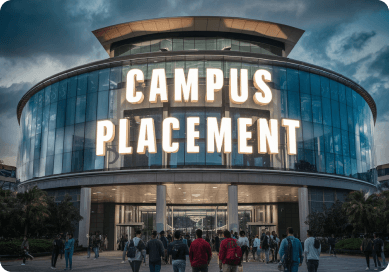Enter OTP



Worcester, United States of America

Worcester, United States of America

Cost Of Living

Undergraduate Fees International Students

Post Graduate Fees International Students

Worcester Polytechnic Institute (WPI) stands out for its unique project-based learning approach, which emphasizes hands-on, real-world problem-solving. The university integrates science, technology, and engineering with a strong focus on innovation and global impact. Its collaborative and interdisciplinary curriculum equips students with both technical expertise and leadership skills. WPI’s Global Projects Program offers students the opportunity to tackle pressing global issues in diverse international settings. This distinctive blend of academic rigor, experiential learning, and societal contribution defines WPI’s unmatched educational experience.
John Searle is a prominent philosopher of mind and language, best known for his work on the philosophy of consciousness.... View More
John Searle is a prominent philosopher of mind and language, best known for his work on the philosophy of consciousness. He is famous for formulating the "Chinese Room" argument, which challenges the notion of artificial intelligence being able to truly "understand" language. Searle received his Bachelor's degree in 1957 from WPI before going on to have a distinguished academic career. View Less
James Watson, co-discoverer of the DNA double helix structure, is a groundbreaking biologist and geneticist. He received... View More
James Watson, co-discoverer of the DNA double helix structure, is a groundbreaking biologist and geneticist. He received his undergraduate degree in Zoology from WPI. Watson’s work in molecular biology led to his receiving the Nobel Prize in Physiology or Medicine in 1962, alongside Francis Crick and Maurice Wilkins. View Less
Peter Zimmerman is a renowned physicist and expert in the field of materials science and engineering. He contributed sig... View More
Peter Zimmerman is a renowned physicist and expert in the field of materials science and engineering. He contributed significantly to the development of advanced materials for use in various applications, including energy storage. Zimmerman earned his degree from WPI and has held prominent positions in both academia and industry View Less
David Dodd is the former Chairman and CEO of McGraw-Hill Financial (now S&P Global), a leading provider of financial inf... View More
David Dodd is the former Chairman and CEO of McGraw-Hill Financial (now S&P Global), a leading provider of financial information and services. Dodd has a background in electrical engineering from WPI and has been instrumental in transforming the company into a global financial powerhouse. View Less
Joseph Loughrey is a business executive and the former President and COO of Cummins Inc., a global leader in engine manu... View More
Joseph Loughrey is a business executive and the former President and COO of Cummins Inc., a global leader in engine manufacturing. He earned his degree in Mechanical Engineering from WPI and has been influential in Cummins' growth and success in the global market. View Less
Jonas Salk, a legendary physician and medical researcher, developed the first effective polio vaccine. After receiving h... View More
Jonas Salk, a legendary physician and medical researcher, developed the first effective polio vaccine. After receiving his education at WPI, Salk went on to become one of the most influential scientists of the 20th century. His discovery saved millions of lives and is considered a landmark achievement in the field of medicine. View Less
William Magee is a philanthropist and the co-founder of Operation Smile, an international medical charity that provides ... View More
William Magee is a philanthropist and the co-founder of Operation Smile, an international medical charity that provides free surgeries for children with cleft lips and palates. Magee graduated with a degree in Biology from WPI and has dedicated his career to humanitarian efforts, impacting thousands of lives worldwide. View Less
Tim Berners-Lee, while not a graduate of WPI, has strong connections to the institution through his pioneering work on t... View More
Tim Berners-Lee, while not a graduate of WPI, has strong connections to the institution through his pioneering work on the World Wide Web. He is often associated with the development of web technologies that have transformed the internet and the global digital landscape View Less
Harry Markowitz is a leading economist and the Nobel laureate in Economic Sciences for his work on the theory of portfol... View More
Harry Markowitz is a leading economist and the Nobel laureate in Economic Sciences for his work on the theory of portfolio selection. His groundbreaking work laid the foundation for modern finance, including the concept of diversification in investment strategies. Markowitz received his Ph.D. from WPI and has had a profound influence on economics. View Less
Alfred Sloan, a prominent industrialist and former President of General Motors, was instrumental in the company’s expa... View More
Alfred Sloan, a prominent industrialist and former President of General Motors, was instrumental in the company’s expansion during the 20th century. Sloan received his degree in Electrical Engineering from WPI. His contributions to management practices and corporate structure continue to shape modern business theory. View Less
Worcester Polytechnic Institute (WPI) boasts a modern and expansive infrastructure designed to support innovative teaching, cutting-edge research, and hands-on learning experiences. The campus features state-of-the-art facilities across various disciplines, fostering an environment conducive to academic excellence and technological advancement.
Academic and Research Facilities: WPI’s infrastructure includes advanced laboratories, specialized classrooms, and collaborative workspaces. The Gateway Park is a key highlight, housing interdisciplinary research centers focused on areas like robotics, data science, and biotechnology. The Foisie Business School and the Life Sciences & Bioengineering Center are other notable facilities that support WPI’s innovation-driven approach to education.
Student Amenities and Campus Life: The campus offers a range of student amenities to enhance campus life, including modern dormitories, recreational centers, dining options, and the WPI Recreation Center. With beautiful green spaces and facilities like the Sports and Recreation Center, students have access to everything they need for academic success and personal well-being.
At Worcester Polytechnic Institute (WPI), student life is centered around creating a well-rounded experience that fosters both academic and personal growth. The university offers a vibrant campus community with numerous opportunities for involvement, leadership, and social connection.
Clubs and Organizations: WPI boasts a variety of student-run clubs and organizations, ranging from academic and professional groups to recreational and cultural clubs. These organizations offer students the chance to explore their interests, develop leadership skills, and connect with like-minded individuals.
Campus Events and Activities: WPI hosts a wide range of events and activities throughout the year, including social gatherings, academic conferences, and cultural celebrations. These events provide students with opportunities to engage with the campus community, learn new things, and have fun outside the classroom.
Wellness and Support: The university prioritizes student well-being through programs focused on mental health, physical wellness, and counseling. The Center for Well-Being, Student Development & Counseling Center, and other resources ensure students receive the support they need to maintain a healthy balance between academics and life.
Diversity and Inclusion: WPI values diversity and strives to create an inclusive environment for all students. With resources like the Office of Diversity, Inclusion, and Multicultural Education, as well as cultural centers such as the OASIS Multicultural Center and LGBTQIAP+ support, WPI ensures that all students feel welcome and valued.
Athletics and Recreation: Students can also participate in a variety of athletic programs, ranging from competitive sports to recreational activities. The athletic facilities at WPI are top-notch, offering students opportunities to stay active, compete, and engage in team-building activities.


Worcester Polytechnic Institute (WPI) provides comprehensive career support to help students achieve their professional goals and navigate their career paths successfully.
Career Development Center: WPI’s Career Development Center offers personalized career counseling, job search assistance, and guidance on internships, co-op programs, and full-time employment. The center helps students build resumes, prepare for interviews, and develop career plans.
Internships and Co-op Programs: WPI emphasizes experiential learning through internships and co-op opportunities, which allow students to gain real-world experience in their fields of interest. These programs are designed to enhance students' resumes, build professional networks, and provide a competitive edge in the job market.
Employer Partnerships and Job Fairs: The Career Development Center connects students with a network of employers and organizes job fairs, career expos, and recruitment events throughout the year. These events give students direct access to potential employers and provide opportunities to learn about various industries and job openings.
Alumni Network: WPI has a strong alumni network that actively supports current students. Alumni often serve as mentors, provide career advice, and participate in networking events. This network is a valuable resource for students looking to make connections in their field.
Professional Development Workshops: WPI offers workshops, seminars, and online resources covering a wide range of professional development topics, such as job search strategies, career exploration, and workplace skills. These resources help students prepare for successful careers and adapt to the demands of the professional world.
Overall, WPI’s career support services are designed to ensure that students are well-equipped to transition from academic life to professional success.
The below information is required while
completing the university application :
a) Online Application
b) $70 application fee
c) Official transcripts
d) Letters of recommendation
e) Statement of purpose
f) Scores from either the GRE or the GMAT exam
Requirements may vary for each program. Please visit program page for specific requirements.
Know moreWorcester Polytechnic Institute (WPI) boasts a strong campus recruitment program that connects students with top employers across various industries. The university’s emphasis on project-based learning and real-world experience makes its graduates highly sought after in the job market. WPI's Career Development Center supports students with internships, co-op opportunities, and job placements. Employers value WPI graduates for their innovative thinking, problem-solving skills, and leadership abilities. This robust recruitment system ensures that students transition seamlessly from academics to impactful careers.



Worcester Polytechnic Institute (WPI) is renowned for its groundbreaking achievements in research and innovation. It has consistently ranked among the top universities for engineering and technology programs. WPI's project-based learning approach has earned national and international recognition for its impact on solving real-world challenges. The university boasts numerous patents, successful alumni, and contributions to industries like robotics, biotechnology, and sustainability. Its faculty and students regularly receive prestigious awards, cementing WPI’s reputation as a leader in education and research.


In 2017, WPI launched its Robotics and Autonomous Systems PhD program, which is designed to prepare students for leadership roles in the field of robotics. The program emphasizes interdisciplinary research, covering areas like artificial intelligence, machine learning, and autonomous systems. It has attracted top-tier students and researchers from around the world.
In 2016, WPI opened its Innovation Studio, a cutting-edge facility designed to foster creativity and innovation among students and faculty. The studio is equipped with advanced tools and resources for prototyping and product design, supporting the development of new technologies and solutions in various fields, including engineering, healthcare, and the arts.
WPI received widespread recognition for its research and innovations in cybersecurity in 2014. The university developed new encryption algorithms and technologies that significantly enhanced data security across industries. WPI’s cybersecurity research continues to drive advancements in protecting systems and data from evolving cyber threats.
Over the past decade, WPI has made significant strides in sustainability, implementing green campus initiatives such as energy-efficient buildings, renewable energy installations, and waste reduction programs. The university has consistently ranked highly in sustainability and environmental stewardship, demonstrating a commitment to reducing its carbon footprint and promoting sustainable practices.
WPI became the first university in the U.S. to offer an undergraduate degree in Robotics Engineering in 2007. The program is designed to equip students with a comprehensive understanding of robotics and automation systems, positioning WPI as a leader in this rapidly evolving field. The program has attracted students from around the world, strengthening WPI's reputation in engineering education.
In 2004, WPI students and faculty contributed to NASA’s Mars Rover project, helping to design and develop key components of the rover. WPI's involvement in this historic mission demonstrated the university’s strong capabilities in space exploration and engineering. The collaboration with NASA has since paved the way for further contributions to space research and robotics.
In 2002, WPI established the National Robotics Engineering Center (NREC), a collaborative facility that focuses on the development of cutting-edge robotics technologies. NREC has worked on various government and industry projects, advancing the field of robotics with significant innovations in areas such as autonomous vehicles, military applications, and healthcare robotics.
WPI established the nation's first degree program in Fire Protection Engineering in 1985. This unique program combines engineering principles with fire science to develop professionals who can design systems to protect lives and property. The program has become a model for similar programs at other universities.
In the 1980s, WPI played a significant role in the development of the early Internet. Researchers at WPI were involved in the development of TCP/IP protocols, which are fundamental to modern networking. This contribution helped lay the foundation for the global expansion of the Internet, impacting billions of people worldwide.
WPI’s Global Projects Program, launched in the 1970s, is one of the university's most defining achievements. This program allows students to work on international projects in collaboration with communities, governments, and businesses worldwide. It has provided students with unique global exposure and has contributed to sustainable development across various regions.
Worcester Polytechnic Institute (WPI) is a hub of innovation, research, and development, driving advancements across diverse fields. Its faculty and students collaborate on groundbreaking projects, addressing global challenges in areas like healthcare, robotics, and sustainability. WPI’s state-of-the-art facilities and interdisciplinary approach foster pioneering discoveries. The university’s emphasis on project-based learning ensures research has practical applications and societal impact. Through partnerships with industries and organizations, WPI remains at the forefront of technological and scientific innovation.
In 2018, WPI unveiled an autonomous vehicle navigation system that used advanced sensors and AI to improve the safety and efficiency of self-driving cars. This invention contributed to the rapidly advancing field of autonomous vehicles, with applications in transportation and logistics.
In 2015, WPI researchers invented a nano-scale drug delivery system that uses nanoparticles to deliver drugs to specific areas of the body, improving treatment efficiency and minimizing side effects. This system has significant applications in cancer treatment, offering more precise therapies.
WPI engineers developed a wireless power transfer system in 2010, allowing for the transmission of electricity without the use of traditional wires. This breakthrough technology has applications in charging electric vehicles, consumer electronics, and in reducing the dependence on physical cables for power transfer.
In the early 2000s, WPI researchers introduced smart glass technology, which allows for the control of light transmission through windows. The technology can adjust transparency based on external environmental conditions, contributing to energy-efficient building designs by reducing the need for heating and cooling.
WPI engineers contributed to the development of hydrogen-based fuel cells in the 1990s. This innovation focused on producing clean energy by converting chemical energy from hydrogen into electrical energy. The fuel cell system was designed for use in vehicles and stationary power generation, contributing to the development of sustainable energy solutions.
In the 1980s, WPI researchers developed a robotic arm designed to assist surgeons with more precise and minimally invasive procedures. This technology helped pave the way for the development of modern robotic surgery tools, leading to improvements in surgical accuracy and patient recovery times.
WPI engineers developed an early environmental monitoring system during the 1960s, which utilized sensors to track air and water quality. This system was one of the first to utilize electronic monitoring for environmental protection, contributing to the rise of modern environmental sciences and policies.
The Dynamometer, invented by WPI students in the 1930s, was a device used to measure the force exerted by engines. This invention was critical in automotive and engineering industries, allowing for more precise testing of engine performance and efficiency.
In 1903, WPI students developed a tethered airship as part of their mechanical engineering curriculum. The airship was used to study the potential of lighter-than-air flight, predating modern aviation technologies. The project laid the groundwork for future advancements in aeronautical engineering.
WPI's earliest notable invention was the development of a working steam engine in 1865 by the institute's mechanical engineering students. It was one of the first experimental models built in the U.S. and demonstrated the emerging potential of steam as a power source for industrial machinery. This invention was crucial in the era of industrialization.











Embark on your educational journey with confidence! Our team of admission experts is here to guide you through the process. Book a free session now to receive personalized advice, assistance with applications, and insights into your dream school. Whether you're applying to college, graduate school, or specialized programs, we're here to help you succeed.
